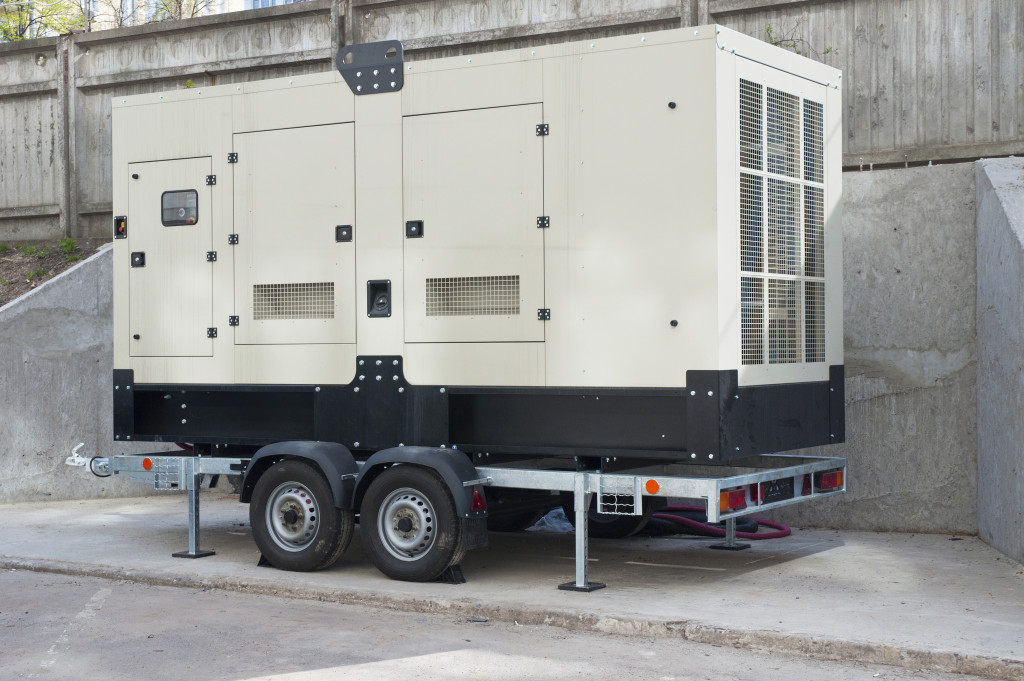Most businesses rely on technology to keep things running smoothly. From lights and appliances to computers and heavy machinery, these modern-day tools have become integral to people’s work lives.
But this also means that if the power goes out, it can cause quite a disruption. That’s where having a generator comes in handy. Generators can provide backup power in an outage, keeping your business up and running. But generators are no small investments. You need to know how to maintain and operate them properly to get the most out of your purchase.
Here are a few practical tips for using power generators in your business.
1. Choose the right generator for your needs.
There are many different types and sizes of generators on the market. Some are meant for small, single-room applications, while others are powerful enough to provide backup power for an entire building. There are even portable generators that can be used in case of an emergency.
Before purchasing a generator, you need to consider your power needs carefully. Consider how much wattage you will need and what type of fuel you want to use. You also need to decide if you need a portable generator or if a stationary one will suffice.
2. Consider the cost of owning a generator.
Generators are not cheap. In addition to the initial purchase price, you also need to factor in repair, maintenance, and fuel costs. Diesel generators are more expensive to operate than gasoline generators, but they also last longer. It would be best to decide on the most cost-effective option for your business.
If you decide to lease a generator, you must be aware of the potential charges. Some companies charge for fuel, while others include it in the lease agreement. Make sure you understand all the terms of the lease before signing anything.

3. Learn how to maintain your generator correctly.
Proper maintenance is essential to the longevity of your generator. You need to make sure you change the oil and air filter regularly. The frequency will depend on how often you use the generator and what fuel you use.
Diesel generators may also require water treatment for the fuel. This is because diesel is a water-based fuel, which can cause engine corrosion. This treatment helps to prevent this from happening. If you are using a diesel generator, ask about the treatment process when you purchase the generator.
4. Get a professional to install your generator.
Installing a generator is not a do-it-yourself project. It would be best if you had a professional do it for you. This is because generators can be hazardous if they are not installed correctly. They can also void your warranty if a certified technician does not install them.
You also need to ensure you have the proper permits before installing a generator. The process and fees will vary depending on where you live, so check with your local authorities. Some places require a licensed inspector to inspect the generator before you can use it.
5. Have a plan for using your generator.
When the power goes out, you need to have a plan for using your generator. This includes knowing how to start it up and properly shutting it down. You also need to understand how to connect it to your electrical system. Be sure to have a dry run of your plan so you can work out any kinks before an actual power outage. This will help you be prepared when the time comes.
You also need to know about the risks of using a generator. Carbon monoxide poisoning is a real danger with generators. Be sure to have a carbon monoxide detector in your home or office and know the symptoms of carbon monoxide poisoning. If you feel sick, get to fresh air immediately and call for medical help.
6. Be prepared for an emergency.
You need to be prepared for an emergency if you have a generator. This means having enough fuel on hand to run the generator during the power outage. It also means having a way to keep the generator safe from theft or vandalism.
You should also plan where you will go if you need to evacuate your premises. This is especially important if you have a disability or medical condition that requires electricity.
Using a generator can be a great way to keep your business running during a power outage. However, there are some things you need to consider before using one. Always follow the manufacturer’s instructions and be sure to have a plan in place before you need to use the generator. With some preparation, you can keep your business running smoothly during a power outage.

